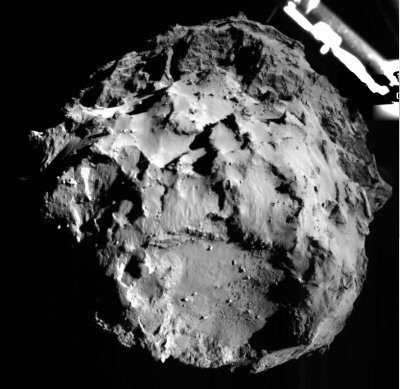I spent the first few hours today in an uncanny glow. On opposite sides of the planet, in utterly different realms, scientists and political leaders had, in two very different ways, accomplished the unthinkable.
The first instance actually hit just before I went to bed. News broke late yesterday that President Obama and Chinese President Xi Jinping had come to a binational agreement on targets for climate pollution reduction. Scratch that; it sounds too dull for what it means.
News broke late yesterday that President Obama and Chinese President Xi Jinping had slashed the Gordian knot that has held back a global climate deal for decades. Until yesterday, any global treaty was doomed because US leaders would insist that it would be unfair to limit US emissions without addressing the single largest carbon emitter: China. And China would insist that it was unfair to ask them to accept stringent emissions limits to correct a problem caused principally by emissions from nations that were quick to industrialize: the US and Europe. It was a clash over fairness, but also over geopolitical power and economic advantage and lots of other things without any connection to climate change itself. And it was an excuse for inaction, with politicians intent on denying climate change and blocking policy often insisting that we shouldn’t bother with a climate bill because China. Without breaking that impasse, the two major carbon emitters would not sign off on any deal, and the climate crisis would roll on unchecked.
It’s no hyperbole to say that this is the greatest foreign policy accomplishment of the Obama presidency. It sets a precedent for future negotiations with China on a range of issues, and that precedent may prevent a US/China cold war down the line. And by setting aggressive targets for carbon emission cuts, it could just save the world.
Then this morning, I woke up, checked my twitter feed, and didn’t look away for hours. I couldn’t turn away, because a global science consortium had sent a rocket into space so a robot could harpoon a comet. FOR SCIENCE. The Rosetta craft was launched by the European Space Agency ten and a half years ago, set on a path that just intersected with Comet 67P/Churyumov-Gerasimenko, allowing a small robot named Philae to land on the comet, lash itself down using harpoons, and take close-up photos and measurements of the comet.
We’ve never landed on a comet before. That’s astonishing. People like you and me built a box and set fire to a bunch of extraordinarily flammable stuff underneath it, and a decade later, it wound up exactly where it’s supposed to be, doing exactly what it’s supposed to do, showing us something we could never have seen otherwise. It’s staggering.
These sorts of landings are often compared to something like firing a bullet in New York and having it hit a fly in China, but really, it’s like firing a bullet in New York and having it gently settle on top of another bullet in China that was fired in Australia. Except the bullets were fired ten years ago.
It’s a reminder that, when we humans set our minds to something, and work together across national boundaries and give ourselves the time to do it right, we can achieve works of staggering creativity and difficulty and beauty.
Confronting climate change and preventing more than 2°C of global warming (the generally-agreed target) will be difficult, and take creativity. To address this challenge, we’ll need to work across national boundaries, deal with long timelines (like setting targets for our emissions in 2030). But today’s news from Comet 67P, relayed via the European Space Operations Centre in Darmstadt, and the announcement from China, remind us that we can do jobs that big, and we have before.
Meanwhile, as my friends Kiki Sanford and Carin Bondar quipped on Twitter:
“We landed on a comet AND came to a climate agreement with China today. What a day! What’s next???”
“surely a nap!”


